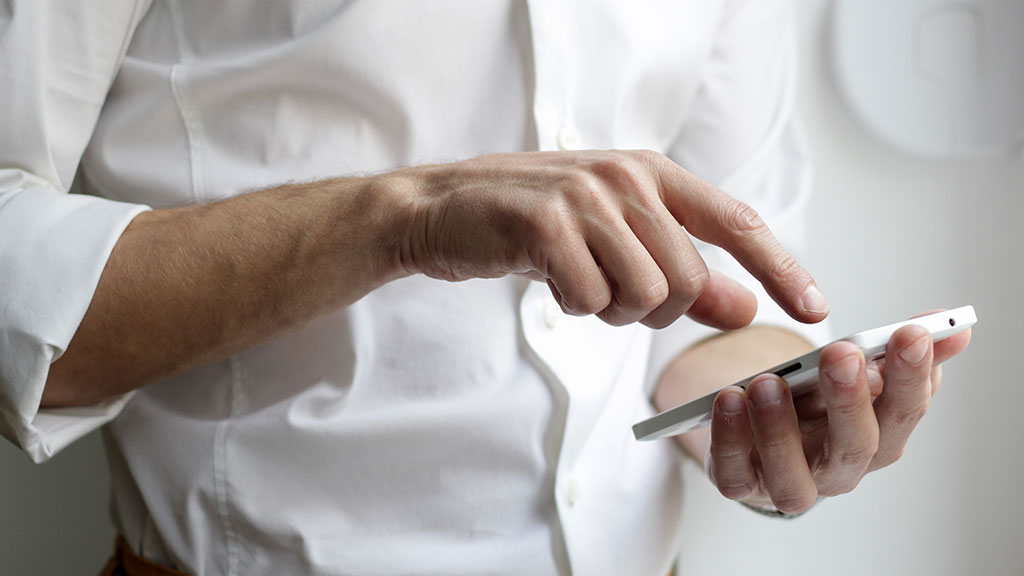Health apps recommended by doctors see higher levels of use
Apps developed by a medical association inspire more trust in users, have a higher likelihood of being used and increase people's willingness to pay for themUsers who take up these technologies are mostly highly educated young men who tend to worry about their well-being

The contact tracing app Radar Covid, launched by the Spanish Government to curb the pandemic, has barely exceeded four million downloads. The low level of uptake of the new tool, which aims to trace community contagion chains and break them in real time, is no outlier. Despite the rise in recent years of mobile health applications hoping to empower citizens to monitor and manage their health with the help of mobile devices, a gap exists between their potential benefits and their actual impact.
Puzzled by this rift, researchers from the Universitat Oberta de Catalunya (UOC), led by Francisco Lupiáñez, professor at the Faculty of Information and Communication Sciences and co-founder of UOC spin-off Open Evidence, have carried out a study to assess mobile health's real impact, as well as to gather data that will help to widen the use of such information and communication technologies in healthcare systems.
The study looked at three European countries with differing healthcare systems, namely Spain, the Netherlands and Germany. The researchers conducted over 2,000 online surveys to better understand the factors with the strongest influence over people's decisions to use health-related technologies, focusing on three variables: data protection, the prescriber and the developer. The study revealed that the prescriber (he or she who recommends using the app) carried the most weight in survey-takers' decision to download and use an application, despite cultural differences between the three nations.
According to Lupiáñez, "Mobile health apps will eventually work just as smoothly as other medical approaches, but to get people to use them and ensure they cause a positive impact on the healthcare system, their prescribers must be healthcare professionals". The researcher sees this as one reason for the poor success of Radar Covid, saying, "To date, it has not been recommended by a single doctor, only politicians, which does not inspire trust in users".
Lupiáñez also pointed out that transparency regarding how Radar Covid was developed is lacking, and that this too plays a vital role in people's decision whether or not to use an application. The researchers found that apps developed by a medical association inspire more trust in users, have a higher likelihood of being used and increase people's willingness to pay for them. Understandably so, trust is key.
In addition, the study revealed that users prefer apps that explicitly demonstrate their compliance with data protection regulations, although this is not enough for people to want to pay for them. Surprisingly, the researchers found that, although we often voice concerns about sharing our personal details, "people do not rule out installing an app even when its business model is based on sharing their data and showing them adverts," Lupiáñez said. By way of conclusion, the expert said, "the study suggests that people are not as selective as they think and often act without concern for their data protection. That's why the presence of healthcare professionals is always welcome".
The study also found that users who take up these technologies are mostly highly educated young men who display concern towards health-related matters and tend to look after themselves and worry more about their well-being.
Funded by the RecerCaixa programme, the study was later published in JMIR mHealth and uHealth.
UOC R&I
The UOC’s research and innovation (R&I) contribute to solving the challenges facing the global societies of the 21st century by studying ICTs’ interactions with human activity, with a specific focus on e-learning and e-health. Over 400 researchers and 50 research groups work among the University's seven faculties and three research centres: the Internet Interdisciplinary Institute (IN3), the eLearn Center (eLC) and the eHealth Center (eHC).
The United Nations 2030 Agenda's Sustainable Development Goals and open knowledge provide strategic pillars on which the UOC's teaching, research and innovation are built. More information: research.uoc.edu.
Related articles
Lupiáñez-Villanueva, F., Folkvord F. ; Vanden Abeele M. (2020). «Influence of the Business Revenue, Recommendation, and Provider Models on Mobile Health App Adoption: Three-Country Experimental Vignette Study». JMIR Mhealth Uhealth. DOI: 10.2196/17272
Experts UOC
Press contact
-
Editorial department
